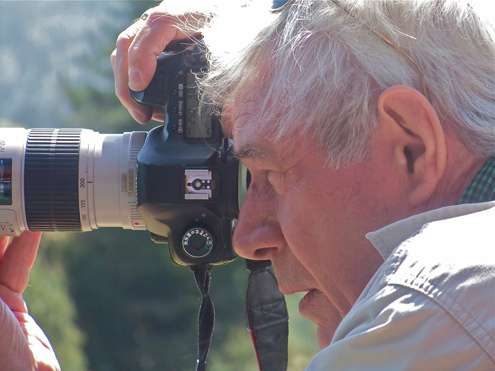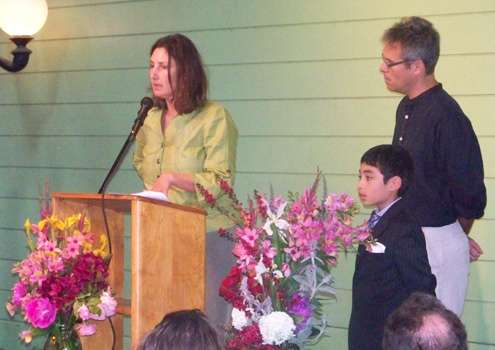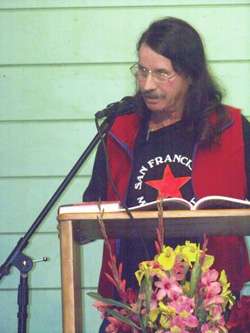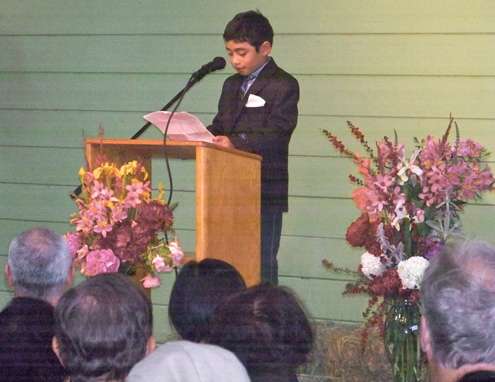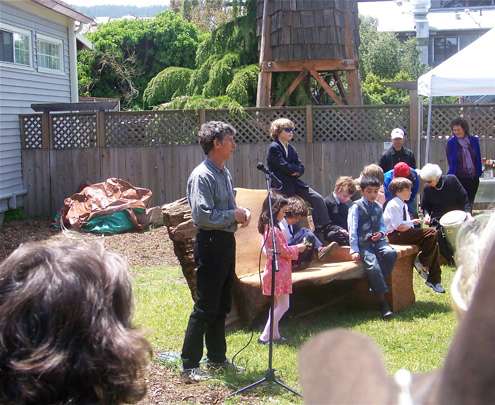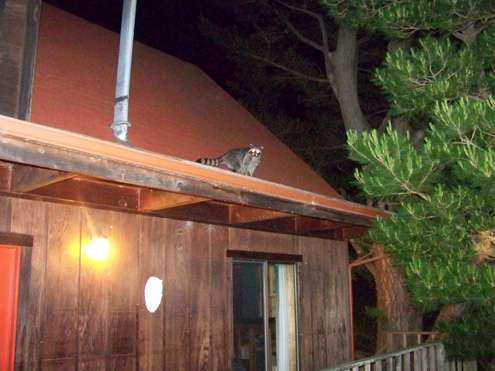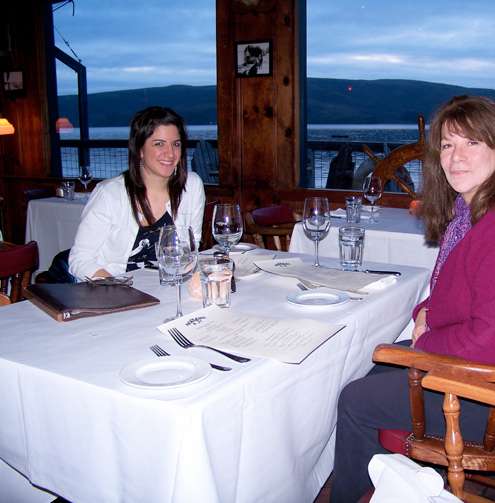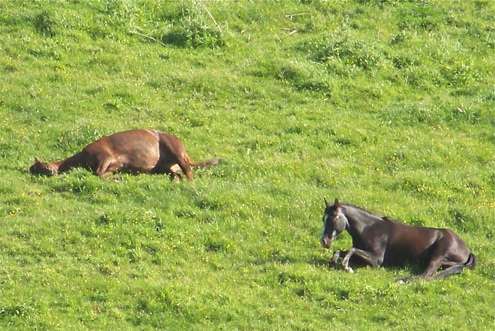Sun 29 May 2011
Words, pictures, and the press
Posted by DavidMitchell under General News, History
[7] Comments
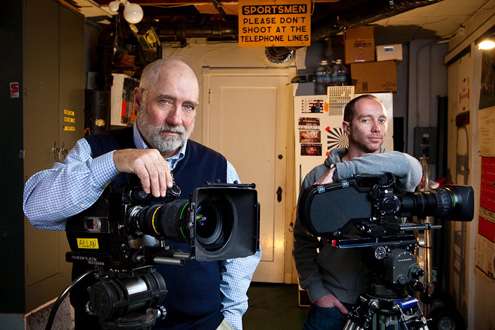 Photo by Dave Gretschman of The Los Angeles Times
Photo by Dave Gretschman of The Los Angeles Times
Even though they didn’t win the award, they still made history. In March, television cameramen Mark Allan of Inverness Park (left) and his son Stephen of Memphis (right) were both nominated for a sports Emmy as a result of their work on Showtime network’s NFL Shots of the Year.
Despite the HBO program Hard Knocks: Training Camp with the Cincinnati Bengals winning the Emmy when the awards were announced May 11, the joint nomination had still been quite an honor. “As far as I know,” Mark told me, “this is the first time a father and son have been nominated for a national Emmy in the same category, same program.”
This was Stephen’s second national nomination and the ninth for his father. Mark previously received an Emmy for HBO/NFL Films Inside the NFL in 1991 and has won 46 other national awards.
Tim Page on my deck photographing horse riders in a neighboring field.
Famed Vietnam War-photographer Tim Page paid a surprise visit to Mitchell cabin a week ago. A British citizen now living in Australia, Page’s 1988 book about the combat press in Saigon, Page After Page: Memoirs of a War-Torn Photographer, was made into a 1992 television series called Frankie’s House.
It’s a story about Page, photographer Sean Flynn (actor Errol Flynn’s son who disappeared while covering the war), photographer Dana Stone (who went also missing in action), UPI reporter Joseph Galloway, UPI photojournalist Steve Northrup, reporter Martin Stuart-Fox, and numerous other journalists.
Frankie’s House takes its name from a bar-brothel where they hung out — with drugs, sex, and rock’n roll providing a respite from the fighting.
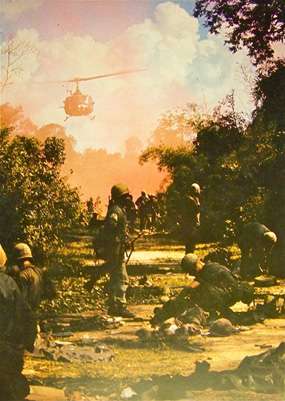


Page was definitely a war-torn photographer, having been injured four times while covering the war.
In the last incident, Page lost a hunk of brain almost the size of an orange to shrapnel after a soldier running ahead of him stepped on a land mine.
Page had been a freelancer on assignment for Time-Life when injured, and I first met him 30 years ago when the old San Francisco Examiner had me cover a trial in which Page sued the corporation for compensation. He won the case but did not get much.
Page was in part the inspiration for the journalist played by Dennis Hopper in Apocalypse Now, later worked with the Vietnam Veterans peace movement, and was a caregiver for wounded veterans.
Although he no longer covers combat, Page told me during his visit that he had recently worked for the UN in Afghanistan. Nothing bad happened to him, but with the threat of bombers ever present, Page said, just being stuck in a Kabul traffic jam was extremely unsettling.
And now for some writing tips. The late reporter George Dusheck of The San Francisco Chronicle and KQED’s Newsroom once pointed out to me that “the lion’s share,” which is often used to mean “the majority,” really means “all.” At least it did originally. Aesop, who coined the term in a fable, used it to refer to a lion that took all the spoils of a joint hunt.
Another confusion arises with the phrase “forlorn hope,” which we often use to mean a doomed cause. In fact, it started out as a Dutch expression verloren hoop, which means “lost troop.” It referred to the first wave of assault troops, who were considered expendable.
When the phrase was picked up in England, the words didn’t mean anything to the common people, so through a process known as folk etymology, they transformed it into forlorn hope, which at least sounded understandable.
Likewise, the town of Shotover in England had been named Chateau Vert (Green Chateau) by the Normans. But here too the foreign words meant nothing to the English common man, so thanks to the process of folk etymology, the name became Shotover.
Finally, I am indebted to the Morris Dictionary of Word and Phrase Origins for an explanation of the phrase “funny bone.” According to the dictionary, “Actually, what causes the painful tingling sensation when you bump your funny bone is the impact not on any bone but on the ulnar nerve.
“However, the term funny bone has been part of the language for many a long year and is apparently here to stay. It results from a rather learned pun on the name for the bone running from the shoulder to the elbow, the humerus. Get it?”
— 30 —

